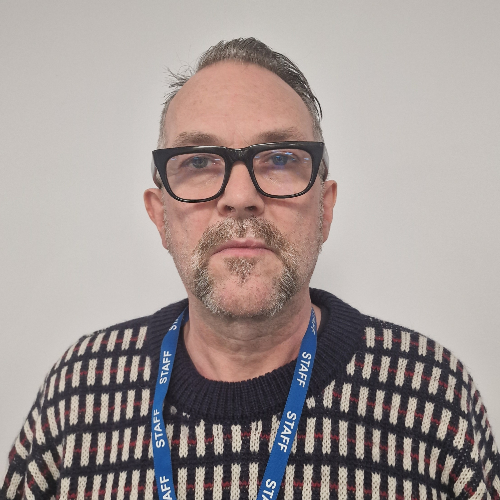
Written by:

Medically Reviewed by:
Last Updated:
March 4th, 2025
GHB Addiction Treatment | Detox & Rehab
If you have decided to seek treatment for GHB addiction, you have already taken a monumental step towards recovery. At Linwood House, we are dedicated to making the next steps as easy as possible with our comprehensive GHB addiction treatment plans. Through a combination of medically assisted detox, comprehensive drug rehab and post-rehab support, we will guide you safely through GHB withdrawal, dissect the causes behind your drug use and help you make a fresh start.
GHB detox – The path to physical recovery
GHB detox is when you stop taking the drug to allow your body to purge all the GHB and its toxins from your body. This initiates the physical healing process and allows you to focus on the later stages of treatment without the distraction or distress of GHB withdrawal symptoms.
Withdrawing from GHB on your own can be very dangerous because of these withdrawal symptoms. However, Linwood House’s medical team will assist and support you throughout the entire process. Upon arrival, this begins with a full medical assessment, a detox plan designed for your health needs and medicine to keep you relaxed and safe.
The GHB withdrawal process
Long-term GHB abuse can create high concentrations of the drug in your system. The constant presence of this amount of GHB can then shock your body if the drug is suddenly taken away. It is this shock that causes GHB withdrawal symptoms, which usually include:
- Anxiety
- Confusion
- Depression
- Hallucinations
- Increased blood pressure and heart rate
- Insomnia and other sleep issues
- Nausea
- Sweats
- Tremors
- Vomiting
The timeline for GHB detox can be different for everyone, but it usually starts a few hours to a day after the last dose of GHB and then lasts up to two weeks. Here’s a general idea of what to expect:
Days 1-3
Withdrawal symptoms usually start mild in the first 24 hours and then get progressively worse over the next few days. Common early signs are intense cravings, anxiety, trouble sleeping and sweating.
Days 4-7
GHB withdrawal symptoms often hit their peak during this time. It often involves severe anxiety, shaking and even hallucinations in the most serious cases.
Week 2
This is the time when you start to see GHB withdrawal symptoms getting better. Physical discomfort and cravings should have all but ended, but you may still have some mood swings and trouble sleeping. These difficulties will start to lessen after this time, and you should now be set for the next stage of treatment.
GHB rehab – Unravelling the causes of GHB use
After completing drug detox, the next vital step is rehabilitation, which seeks to understand why you started using GHB and the reasons behind your mental or emotional dependence. Some people might use GHB to cope with anxiety, stress or other personal issues, while others may have started taking it recreationally but lost control over their use.
GHB rehab therapy helps you uncover your reasons so you can work through them effectively. This means that in the future, you will be better prepared to deal with the situations, people and emotions that used to make you turn to GHB.
Linwood House provides inpatient GHB rehab, which is where you stay at our centre during detox and therapy. Most experts agree that this is the best way to recover from drug addiction because it gives you the chance to get away from all of the things you associate with GHB use and focus 100% on getting better.
GHB rehab therapy at Linwood House
Everyone’s journey to GBL addiction is unique, with different underlying causes at play. That is why Linwood House provides a variety of treatment therapies which will help teach you things about yourself that you didn’t know and give you a better understanding of how GHB entered your life and how best to put it behind you.
Some of our most important GHB rehab therapies include:
Individual therapy
In individual therapy, you get personalised, one-on-one sessions with a therapist to discuss the causes and impact of GHB use. These private meetings offer focused attention to help you develop customised strategies for navigating your personal recovery challenges.
Group therapy
In group therapy, you will share your experiences with others in recovery and listen to their stories. This can help you see things in a new way and get encouragement from people who understand exactly what you’re going through.
Family therapy
Family therapy involves your loved ones in your treatment. It gives you a safe space to work through problems caused by GHB so that you can heal and move forward together.
Trauma-focused therapy
Trauma-focused therapy helps you deal with any past traumas that may have led to your GHB use. It can help you work through these painful experiences so you can cope better in the future without needing GHB.
CBT
CBT helps you spot and change negative thoughts and behaviours that make you want to use GHB. It is one of the longest-used and most effective therapies for addiction recovery.
DBT
DBT combines thinking techniques with mindfulness (being aware of your thoughts and feelings). It teaches you skills to manage stress and difficult emotions, improve your relationships and build a more balanced life.
Holistic therapies
Our holistic therapies include activities like yoga, meditation and art therapy. They can help you feel better overall by reducing stress and allowing you to express yourself creatively.
GHB relapse prevention – Moving forward together
Preventing relapse is a crucial part of recovering from GHB addiction, and Linwood House ensures ongoing guidance to help all our clients stay sober. We will help you make a relapse prevention plan during your time with us and then provide one year of free weekly group therapy after you leave to help you follow it.
Here are some of the strategies which make up an effective relapse prevention plan:
Joining a local support group
Local support groups, such as Narcotics Anonymous, are across the UK. These groups can connect you with counsellors and other people in recovery. Along with your aftercare therapy groups, these people can offer advice and encouragement and help you stay motivated.
Staying healthy
A healthy lifestyle helps you stay strong in your recovery because when you feel good, you are less likely to want or feel like you need to use GHB. Regular exercise, eating well and getting enough sleep can all improve your emotional, physical and mental health and stop you from going back to drugs.
Trying new hobbies
It is likely that before rehab, GHB took up the majority of your time. Staying busy by finding new hobbies and interests is important to fill that time and give you a sense of purpose. This can be anything from sports to volunteering to learning a language or instrument.
Using stress management techniques
Stress is one of the most common triggers for relapse, so if you can learn to manage it better, you will go a long way to staying sober. At Linwood House, you will practise meditation, mindfulness, and yoga, which can all help you stay relaxed when life gets tough.
Begin GHB addiction treatment today
While it may seem daunting, overcoming GHB addiction and transforming your life is infinitely possible with the right support. Linwood House is here to guide you through each stage of recovery and help you plan a life free from GHB. Get in touch with us today, and we will help you get started.




